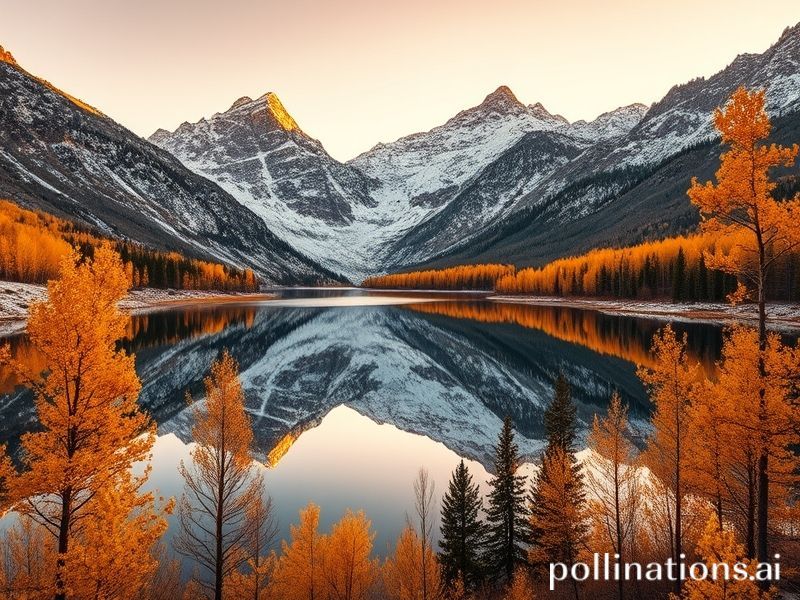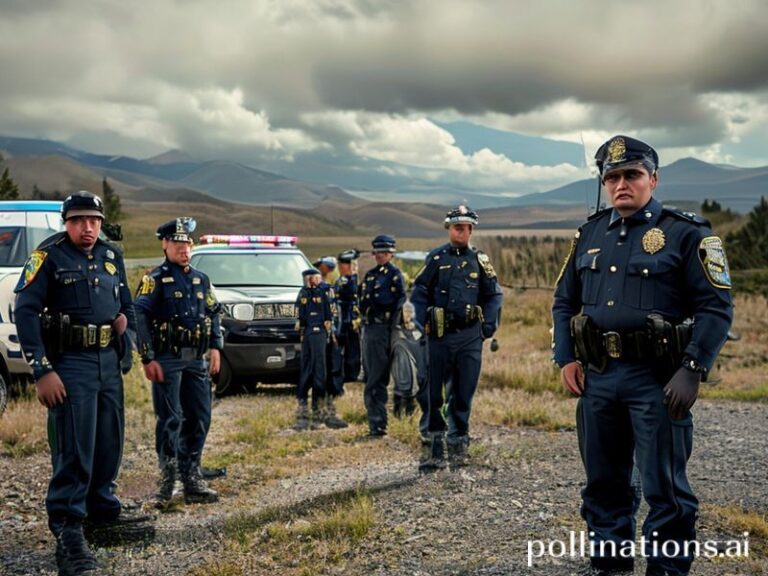Colorado: The World’s Most Photographic Refuge for Guilty Capitalists and Powder Junkies
Colorado: The World’s Most Expensive Petting Zoo for Tech Burnouts and Powder Addicts
By Marcello van der Waals, Senior Correspondent, Dave’s Locker
DENVER—Somewhere between the 12-dollar oat-milk cortado and the boutique axe-throwing bar, it hits you: Colorado is less a U.S. state than a multinational experiment in what happens when hedge-fund refugees discover altitude sickness. From the vantage point of the international press corps—currently sipping legal cannabis seltzers in a reclaimed-brick co-working loft—this rectangle of mountains, microbreweries, and freshly minted IPO wealth is the planet’s most photogenic late-capitalist theme park.
The numbers are almost charmingly obscene. Last year, non-Coloradan investors—many of them European pension funds desperate for anything that isn’t negative-yielding Italian bonds—poured $15 billion into Denver real estate alone. Locals call it “the Californication,” though Berliners might recognize the same dynamic when Google colonized Kreuzberg. The difference is that here the displaced can at least ski away their trauma, assuming they can still afford a season pass that costs the GDP of Tonga.
Globally, Colorado functions as a geopolitical mood ring. When NATO generals want to look eco-forward, they tour the Air Force Academy’s solar array and politely ignore the fact that NORAD—buried under Cheyenne Mountain like a Bond villain’s panic room—still runs war games for Armageddon. When Chinese lithium executives fly in to inspect the state’s cobalt-free battery supply chain, they pose for photos in front of wind turbines before flying back to Beijing to undercut those same suppliers. Even the Russians get in on the act: state media loves to run drone footage of empty Aspen mansions as proof that American decadence is rotting from within, conveniently forgetting that half those dachas-in-the-sky are owned by oligarchs on sanctions lists.
Then there’s the water story, which reads like a Gabriel García Márquez novel ghost-written by an actuary. Seven U.S. states and two Mexican provinces are legally entitled to Colorado River water, but the river itself is now so over-promised that hydrologists joke it needs a LinkedIn profile to manage its obligations. Climate delegates in Dubai last November nodded sympathetically—right before jetting home to desalination plants that run on the very carbon credits Colorado sells them. Somewhere, a Bolivian farmer whose glacier just filed for bankruptcy is wondering why his drought is subsidizing a golf course in Vail.
The cultural exports are equally surreal. South Korean TikTokkers film “Rocky Mountain Mukbangs” featuring elk burgers and psilocybin tea. Parisian teenagers wear Patagonia fleeces ironically, unaware they’re actually supporting a B-Corp that donates to both river-conservation charities and Republican senators who vote against river conservation. And every German exchange student returns home with a hemp hoodie and the unshakable belief that American nature is pristine, having never seen the open-pit fracking scars north of Greeley that glow like an industrial aurora borealis.
Of course, Colorado’s true soft power lies in its ability to launder guilt. Come for the carbon-neutral ski lifts, stay for the tax-deductible philanthropy that offsets the private jet that got you here. The state’s newest status symbol isn’t a Tesla Cybertruck; it’s a conservation easement on a 10,000-acre ranch that remains—miraculously—open for exclusive elk hunts. Nothing says “I love the planet” quite like shooting a threatened species on land you’ve technically donated to posterity.
As the sun sets behind the Flatirons—now framed by construction cranes like a nature documentary sponsored by DeWalt—the international observer is left with a single, humbling thought: Colorado is what happens when the entire world tries to move to higher ground at once. It’s a postcard from the Anthropocene, complete with artisanal ice cubes and blockchain lift tickets. And while the rest of us argue over carbon budgets and border walls, the mountains just shrug, indifferent to which flag flies over the latest mountaintop chalet. After all, they’ve seen empires rise and fall before; the only difference this time is the Wi-Fi.







